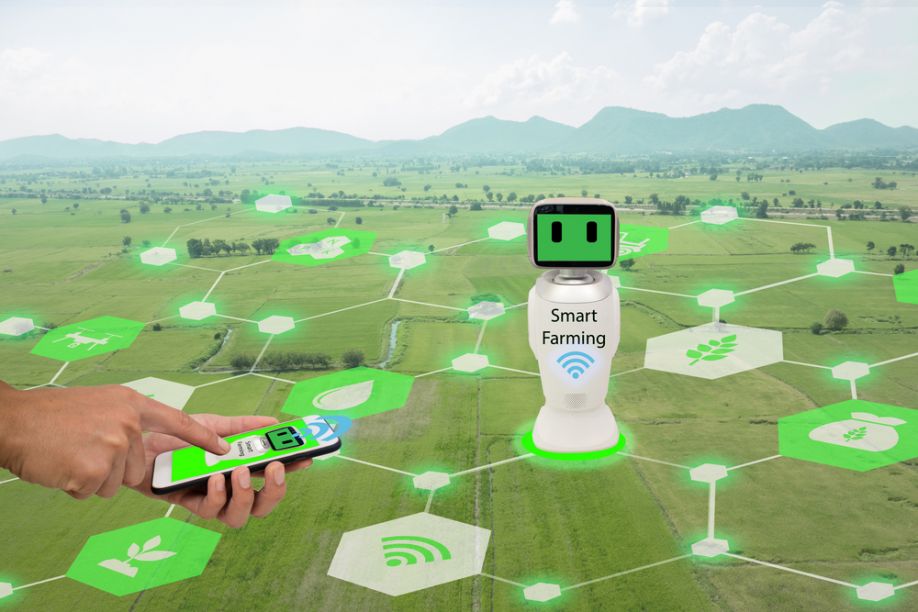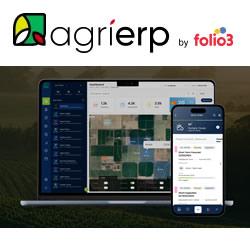Data-Driven Technology: Transforming the Agriculture Industry

In today's rapidly evolving world, technological advancements have revolutionized various sectors, and agriculture is no exception. The integration of data-driven technology has become the next frontier of agriculture, bringing forth a multitude of benefits and transforming traditional farming practices. With the advent of digital tools, machine-learning algorithms, artificial intelligence, and the power of data, a deeper understanding of small landholders, inefficiencies, and future challenges can easily be identified and addressed. This article explores how data-driven technology is reshaping the agriculture industry, paving the way for a more sustainable and efficient future.
One of the key aspects of data-driven agriculture is the utilization of IoT sensors for real-time on-field data capture. These sensors can be deployed across farmlands to gather valuable information such as soil moisture levels, temperature, and nutrient content. By collecting and analyzing this data, farmers gain insights into the precise needs of their crops, enabling them to optimize irrigation, fertilization, and pest control strategies. This level of precision ensures resource conservation and maximizes crop productivity, ultimately leading to higher yields and increased profitability for farmers.
Another vital application of data-driven technology in agriculture is the implementation of product identification codes for food traceability. With growing concerns regarding food safety and quality, consumers are increasingly demanding transparency in the supply chain. By assigning unique codes to each product, information about its origin, production methods, and transportation can be easily accessed. This not only enhances consumer trust but also facilitates faster recalls in the event of a foodborne illness outbreak, preventing widespread contamination and minimizing health risks.
Furthermore, data-driven technology enables improved management of inventory and financials in the agriculture sector. By digitizing and centralizing data related to crop yields, input usage, and market prices, farmers can make informed decisions about production planning, purchasing, and pricing. This level of precision and transparency reduces waste, minimizes losses, and optimizes revenue generation. Moreover, financial institutions can leverage this data to offer tailored financial services to farmers, including access to credit and insurance, thereby fostering financial inclusion and reducing the vulnerability of small landholders.
The integration of artificial intelligence in agriculture extends beyond crop management to labor efficiency. With AI-based attendance systems, farmers can accurately track the working hours of their labor force. This not only ensures fair compensation but also provides insights into labor productivity and performance. By identifying and addressing inefficiencies, farmers can optimize their workforce, streamline operations, and increase overall productivity. Additionally, this technology enables the automation of routine tasks, freeing up time for farmers to focus on more critical aspects of their operations.
In parallel, the use of data-driven technology has revolutionized farm machinery management. With tech-driven systems, farmers can monitor and analyze the performance of their machinery in real-time. This proactive approach allows for timely maintenance and repairs, reducing downtime and enhancing the lifespan of equipment. Moreover, by leveraging data analytics, farmers can optimize machinery usage and deployment, resulting in improved operational efficiency and cost-effectiveness.
Another significant impact of data-driven technology in agriculture is disease identification and prevention through AI-based surveillance systems. By analyzing data from various sources such as weather patterns, crop health indicators, and pest populations, AI algorithms can identify potential disease outbreaks before they cause significant damage. Early detection enables farmers to implement targeted interventions, such as precision spraying or disease-resistant crop varieties, minimizing losses and ensuring sustainable production practices.
In embracing the transformative potential of data-driven technology in agriculture, farmers are poised to reap the benefits of improved efficiency, sustainability, and resilience. By harnessing the power of digital tools, artificial intelligence, and real-time data, they can make informed decisions and address the challenges of small landholding, inefficiencies, and future demands. From precise crop management and enhanced traceability to optimized inventory and labor efficiency, data-driven technology is revolutionizing traditional farming practices. This relentless pursuit of innovation in agriculture ensures a promising future characterized by increased productivity, reduced environmental impact, and enhanced food security. With data as their ally, farmers are at the forefront of shaping a sustainable and prosperous agricultural landscape.
Comments (0)
This post does not have any comments. Be the first to leave a comment below.
Featured Product

